If you’ve walked by a construction site, you’ve likely seen the enormous bins filled with broken bricks, unfinished slabs of concrete, and rusted metal pipes. This debris adds up, generating 600 million tons of waste every year. But to industrial designer Sasha Plotitsa, it’s an opportunity. He sees a pile of precious materials that can be reincarnated as beautiful new objects.
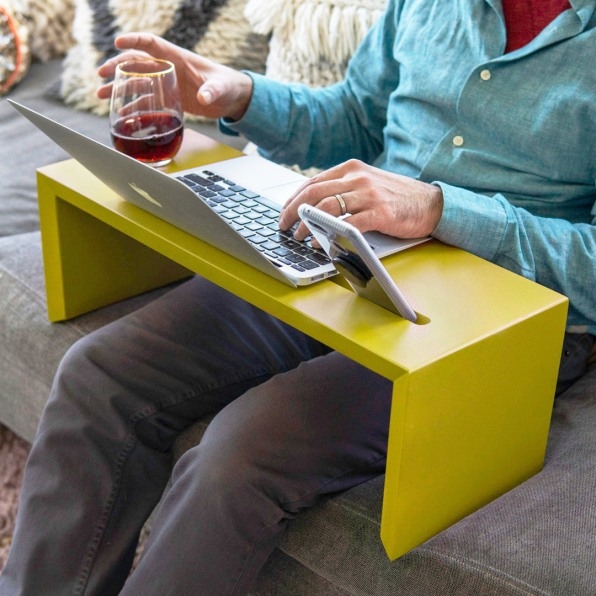
A year ago, Plotitsa launched Formr, a startup that creates colorful furniture, including side tables, laptop desks, and shelves. Plotitsa designs each piece, which is handmade in a San Francisco workshop by formerly incarcerated people, whom he trains to clean the salvaged materials and transform them into new things. Each piece serves to draw attention to the materials that go into our everyday products and to the people who make them.
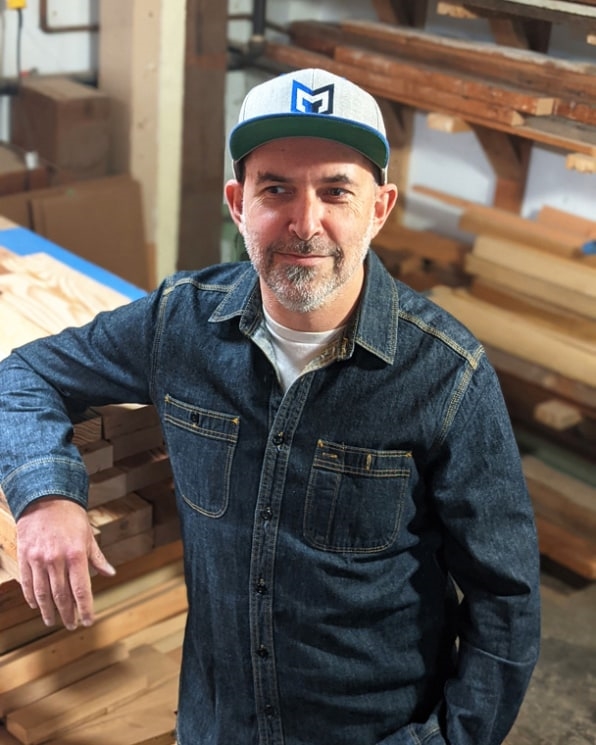
[Photo: courtesy Formr]
The designs are minimal yet highly functional. There’s a wood table with a glass planter built into the middle. There’s a small table that allows you to work on your laptop while you sit on the couch, complete with a little stand for your phone. There’s a bedside table that has a built-in light with a dimmer controlled by a touch sensor.
Formr brings together many threads in Plotitsa’s varied career. His father was a contractor, and Plotitsa grew up spending a lot of time on job sites, where he saw firsthand how much waste was generated. In college, he decided to pursue a degree in industrial design at San Jose State. In 2009, he was hired to design the MediThrive cannabis dispensary in San Francisco, which was later shuttered by the federal government because while the substance was legal in California, it wasn’t legal nationally. It was through this work that he learned how many people were incarcerated for drug-related offenses and how hard it was to create a life for themselves out of prison. “I saw for myself what the failed war on drugs looked like,” he says. “When someone comes out of prison, they have to check the box on a job application that says they have a record. That makes it very hard for them to get their life back on track.”
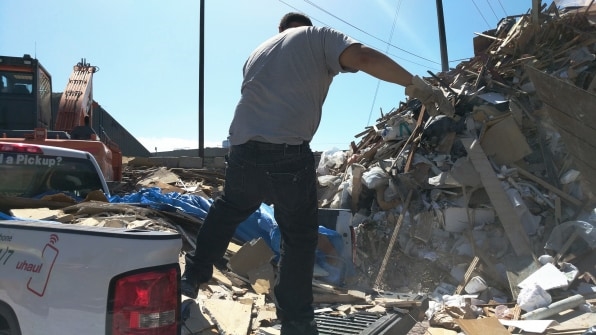
After years as a successful commercial designer, Plotitsa decided to take a break in what he describes as a midlife crisis; he wanted to do something more meaningful with his life. He wanted to build an industrial design company with a socially responsible mission that addressed two of the issues that he cared about most: waste and recidivism. But getting such a business off the ground proved to be challenging.
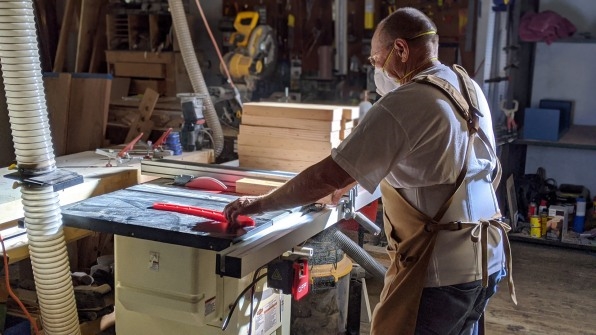
While three-quarters of construction waste gets recycled, including materials like metal and glass, the rest—all 145 million tons of it—gets sent to landfills. Plotitsa wanted access to these materials, but there is no established infrastructure for it. To this day, he finds himself calling contractors one by one to see if they will let him come take a look at their trash. And though he has an extensive Rolodex of contractors he has met over the years, most of them don’t want anybody coming to their construction site, partly because this presents some liabilities to them.
“Many contractors are set in their own ways and don’t want someone messing with their system,” he says. “They have never diverted or recycled materials before, and they don’t see any reason to start doing so now. They call someone to haul it away, and they never have to think about it again.”
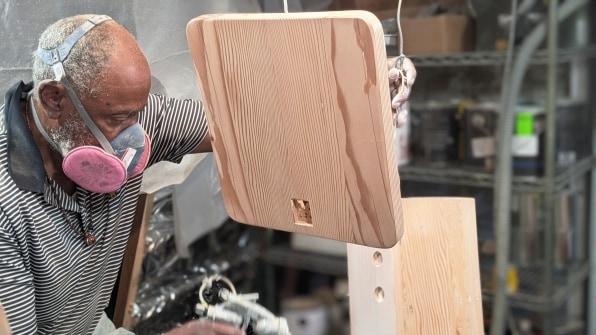
Plotitsa has found several contractors who do understand his mission and invite him to come by. He gathers promising materials, like enormous blocks of wood. He has an industrial-size metal detector in his workshop so he can scan the materials and remove stray nails. Then he cleans and sanitizes the materials so they are safe to use.
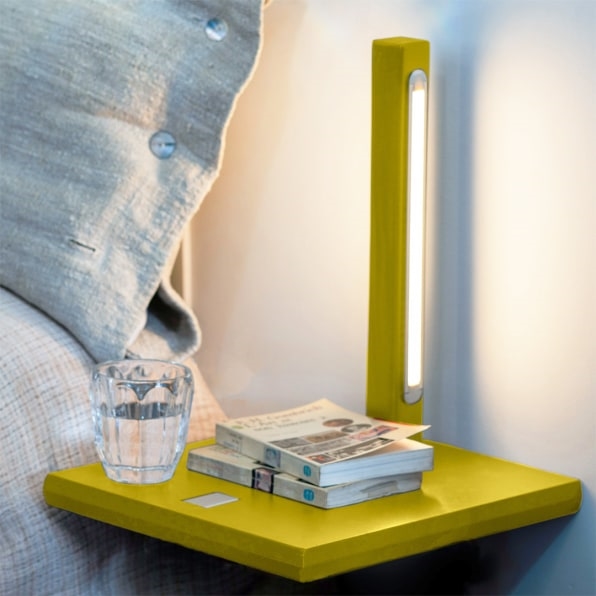
Bringing on people to work at Formr presents its own challenges. Plotitsa finds workers through a range of organizations that help recently incarcerated people. Many prisons have a woodshop, so there are workers in the population who know how to make furniture. Since the business started, he has hired six workers, but he finds that it can be hard to retain them because life in the aftermath of imprisonment can be unstable. In one case, an employee had to stop working because of a health problem that hadn’t been properly taken care of while he was in prison. In other cases, workers have struggled with renting a place to live or managing a drug addiction. “I’ve found that the key is to ask them what kind of support they need,” Plotitsa says.
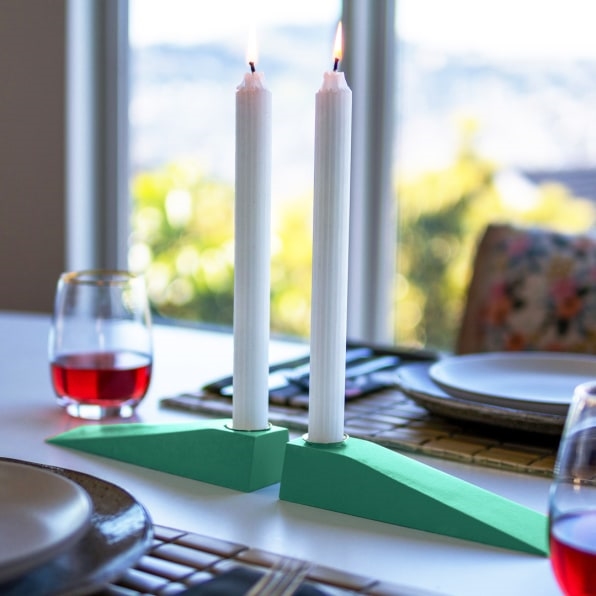
But there have also been success stories. Gary Harrell, Formr’s fourth employee, spent 45 years in prison. He loved creating pieces for Formr and simultaneously began working on his own art. Within a few months, his work was picked up by several galleries, including the Smithsonian, the Library of Congress, and MoMA PS1 in New York.
Formr has only been up and running for nine months, but Plotitsa has found an audience of design lovers who aren’t just interested in how beautiful or functional the furniture is, they also want to bring objects into their home that tell a story and reflect their values. “I think people are looking for meaning in their life,” he says. “This applies to their furniture as much as it does to their careers.”
The pieces cost between $89 and $569 and can be purchased on the Formr website.
(46)